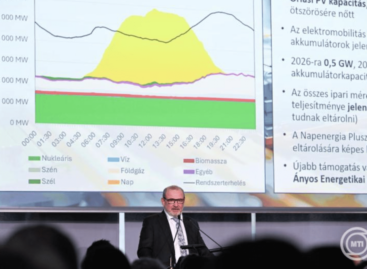Banning ‘forever chemicals’: EU moves to restrict PFASs
The European Commission is planning to introduce a new proposal aimed at a broad ban on the use of so-called “perfluoroalkyl substances” (PFAS) in consumer products. The measure aims to reduce the spread of these substances, which are harmful to the environment and human health, while allowing exemptions for certain industrial uses, Portfolio reports.
PFAS (perfluoroalkyl and polyfluoroalkyl substances) are found in many products due to their special properties, such as non-stick cookware, cosmetics, wind turbines and aircraft. These substances are extremely resistant and practically do not break down in the environment, which is why they are referred to as “perfluoroalkyl substances”. However, despite their benefits, they pose significant environmental burdens and health risks.
The European Union’s Environment Commissioner, Jessika Roswall, confirmed that the use of PFAS in consumer products will be phased out. “This is not only important for the environment, but also for people and industry,” Roswall stressed, adding that industry players would be given enough time to make the transition.
The proposed regulation would allow the continued use of PFAS in certain areas. Asthma inhalers, semiconductors used in electric vehicles and other essential technologies could continue to use these substances, taking into account their irreplaceability.
However, following consultations with the European Chemicals Agency (ECHA), representatives of the automotive, clean energy and plastics industries have called for further exemptions, in particular for fluoropolymers, which are used in the production of, for example, waterproof clothing and solar panels.
The EU proposal is not without precedent. Denmark, Germany, the Netherlands, Norway and Sweden have already supported broad restrictions on PFAS. The United States has also taken serious steps, including multi-billion dollar settlements in water pollution lawsuits by companies such as 3M and Chemours.
The planned EU ban is expected to come into force in early 2025 and will have a significant impact on many industries. It is another step towards achieving the EU’s environmental goals, which include sustainability and reducing the use of harmful substances.
Related news
New EU tariffs could arrive in 2026 – this is how they could transform the market
🎧 Hallgasd a cikket: Lejátszás Szünet Folytatás Leállítás Nyelv: Auto…
Read more >Related news
40 secure jobs, sustainable solutions – new BURGER KING® in Csepel
🎧 Hallgasd a cikket: Lejátszás Szünet Folytatás Leállítás Nyelv: Auto…
Read more >









